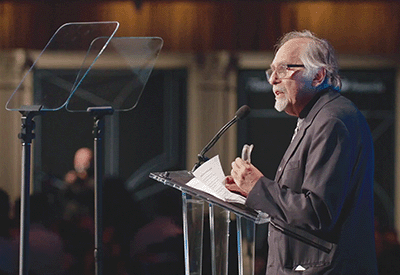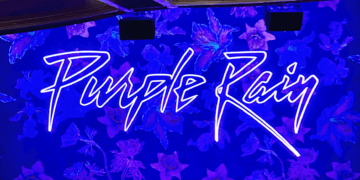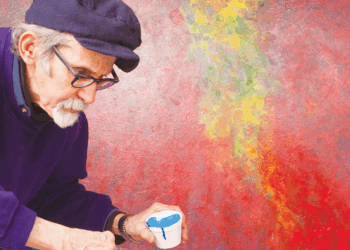The Jewish World’s February 2022 issue featured a story about a Tennessee school board’s decision to ban the acclaimed book Maus, by comic artist Art Spiegelman. The graphic novel about the Shoah and the author’s complicated relationship with his survivor father won a 1992 Pulitzer Prize.
A JTA report on the banning of Maus, which depicts European Jews as mice and Nazi henchmen as cats, noted that the book was “an anchor text for McMinn County’s eighth-grade English language arts instruction, making it the centerpiece for a months-long study of the Holocaust.”

“Mike Cochran, one of the district’s 10 board members, said he didn’t object to students learning about Holocaust history. But he questioned why Maus was an appropriate choice because it includes profanity and a drawing of the author’s mother naked. (Like the other Jews in the book, the author’s mother is rendered as a mouse.)”
Tony Allman, a member of the McMinn County school board, objected to including Maus in the curriculum: “It shows people hanging, it shows them killing kids.” He added, “Why does the educational system promote this kind of stuff? It is not wise or healthy.”
“Of the roughly six million Jews murdered by the Nazis during the Holocaust, approximately 1.5 million were children,” the JTA story pointed out.
In a 2023 interview with PEN America, Spiegelman recalled when he first heard about his book being banned in Tennessee — as a third county school board in Missouri was considering banning Maus.
“You know, I thought it was similar to the moment when I got a Pulitzer Prize, and I found out about it by mail,” said Spiegelman. “I said, that’s not happening, that’s some weird part of my dream life. Because Maus has become so firmly entrenched in schools. It didn’t seem like this was the kind of thing anybody would get up in arms about because even in McMinn County, people were reading it for many, many years.”
I bring up this history of book banning because it’s included in an exemplary documentary, Art Spiegelman: Disaster is My Muse, which is part of the American Masters series on PBS. The documentary first aired in April, and can be viewed on the PBS website.
(The PBS version censored a 90-second portion of the film dealing with Spiegelman’s contribution to an anti-Trump publication created by his wife, Françoise Mouly, and others for the 2017 Women’s March protesting Trump’s election as president. An uncensored version of the documentary is available on the Kanopy app.)
The documentary, which was directed and produced by Molly Bernstein and Philip Dolin, traces Spiegelman’s career as a trailblazing artist in the genre known as “underground comix.” Early in the documentary, Spiegelman and Mouly welcome two dinner guests, Robert Crumb and his wife Aline Kominsky-Crumb. Spiegelman acknowledges R. Crumb as the “king” of underground comix, going back to Zap Comix, the iconoclastic comic book from the late 1960s. I was immediately drawn into the film. (Kominsky-Crumb died in 2022.)
In addition to R. Crumb, other artists in the comix field, including Joe Sacco and Bill Griffith, testify in the film to the significance of Spiegelman’s achievement in expanding the purview of comics or what’s come to be known as the graphic novel.
Spiegelman and Mouly, a designer who became art director of The New Yorker magazine, serialized what was to become Maus in their publication Raw, starting in December 1980. It was published as a graphic novel six years later. It became a New Times best seller, and millions of copies have been sold around the world.
The success of Maus posed some psychological problems for Spiegelman, who complained that a “500-pound mouse” followed him everywhere. He published a sequel volume Maus II, as well as other collections of comics, In the Shadow of No Towers (about the 9/11 terrorist attacks), Breakdowns and Metamaus. He also has contributed illustrations for The New Yorker, which have occasioned controversy.
The catalog of books banned in the United States is growing, especially with the rise of Trump and the MAGA (Make America Great Again) movement, which upholds this nation’s historical championing of white supremacy. Invoking the rubrics of “woke” and “DEI” (diversity, equity and inclusion), Trump and his sycophants are currently purging the U.S. government of programs that are seen to be critical of their benighted policies.
In the field of academia, the Jewish World has been publishing reportage and opinion articles on the Trumpites’ attempts to bend institutions of higher learning to their will. And the Trump 2.0 administration is trying to defund National Public Radio (NPR) and the Public Broadcasting Service (PBS), which are seen as having a liberal bias.
As the saga of Maus illustrates, history, even that of the Shoah, is an ongoing battlefield. The most recent book by Jason Stanley, a Yale professor and authority on fascism, is titled Erasing History: How Fascists Rewrite the Past to Control the Future.
Stanley writes that “the United States has seen a wave of right-wing political interference in education focused on banning certain concepts, authors, and books from schools’ libraries and curricula. The unstated goal of these bans is to erase the perspectives and histories of marginalized groups, including most prominently the history of Black Americans, whose ancestors were enslaved and brutally subjugated in this country.”
The ongoing mania to ban books and establish “patriotic education” in schools recalls George Orwell’s 1949 novel Nineteen Eighty-Four, in which the Party’s Ministry of Truth casts uncomfortable bits of the historical record down the “memory hole.”
It’s incredible that we’re living through an attempt to establish fascism in this country. A Christian fascist regime ruling the U.S. is something that we don’t need — and it’s a project that we all should oppose.
Mordecai Specktor / editor [at] ajwnews [dot] com
(American Jewish World, June 2025)
Here is the trailer for the Art Spiegelman documentary:




















